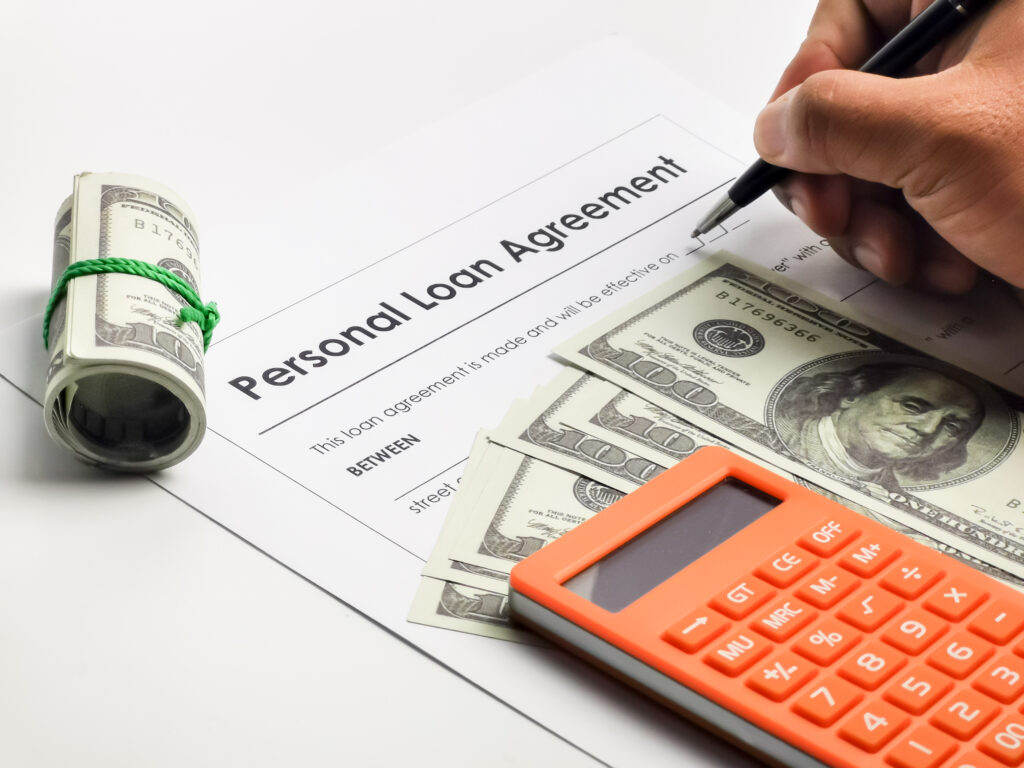
In this article, we’ll discuss personal loans and credit cards, common tools for borrowing money, aiming to help you manage your finances effectively. A personal loan involves borrowing a fixed amount and repaying it through equal monthly installments, usually with a fixed interest rate. Credit cards provide a revolving credit limit for purchases or cash advances, not as a lump sum, with variable interest rates and the option to make minimum payments or pay off the entire balance.
Understanding these differences will guide you in choosing the right option based on your financial needs.

Personal loans and credit cards have distinct benefits based on your financial situation.
Credit cards offer easy access to funds for everyday expenses or unexpected costs, often with rewards programs that accumulate savings or incentives over time.
On the other hand, personal loans usually have lower fixed interest rates, making them a cost-effective option for significant expenses or long repayment periods.
They also provide a lump sum upfront and structured monthly payments, aiding effective budgeting and planning. Understanding these advantages assists in making informed choices aligned with your financial needs and objectives.

Personal loans offer several advantages compared to other forms of credit such as credit cards. In this section, we will explore the key benefits of personal loans and how they can be beneficial for borrowers in various situations. From lower interest rates to flexible use of funds, personal loans provide individuals with financial solutions that suit their needs. Let’s take a closer look at some of the advantages of personal loans.
Interest rates play a crucial role in borrowing decisions, significantly affecting long-term costs. Generally, personal loans tend to offer lower interest rates compared to credit cards. This is primarily because personal loans follow a predictable repayment structure with fixed monthly installments, providing lenders confidence in repayment.
Additionally, personal loans can be collateralized or uncollateralized, contributing to lower interest rates, while credit cards, due to their revolving nature and added convenience, often have higher interest rates, potentially resulting in significant interest charges over time.
Understanding these differences empowers borrowers to choose wisely, potentially saving considerable money in the long run.
Understanding fixed monthly payments is vital for making informed borrowing decisions with both personal loans and credit cards. In personal loans, these fixed payments are predetermined and cover a specific amount, interest, and agreed repayment term. They provide predictability and consistency in budgeting and financial planning, fostering good financial habits.
Credit cards, however, usually offer a minimum payment option, allowing flexibility but risking a cycle of revolving debt if only minimum payments are made. Making higher, set monthly payments above the minimum can effectively reduce credit card debt. It creates a structured repayment plan and can save you money on interest.
Recognizing the importance of fixed monthly payments enables individuals to manage their finances wisely, aligning with their financial goals and preferences.
Personal loans are viewed as less risky than credit cards primarily because they offer fixed interest rates and monthly payments. This stability allows borrowers to plan and budget their finances accurately, steering clear of sudden interest rate hikes. Additionally, personal loans enforce a structured repayment plan, ensuring debt is paid off within a set time frame, promoting disciplined debt management.
Conversely, credit cards, with their variable interest rates and flexible minimum payments, often lead to Making higher monthly payments on your credit card debt can help you pay it off faster and save money on interest-prolonged debt and higher interest costs.
Personal loans’ clear repayment timelines motivate borrowers to prioritize repayment, potentially saving on interest charges and aiding in timely debt clearance.
Overall, the defined structure and predictability of personal loans make them a more controlled and less risky borrowing option than credit cards.
Credit cards offer numerous advantages to users, making them a popular choice for everyday purchases and managing expenses. From convenience and flexibility to rewards and consumer protection, credit cards provide a range of benefits that can enhance financial management and improve one’s purchasing power.
Compared to personal loans, credit cards are more easily accessible and have lower approval requirements.
Credit card companies offer a variety of options, making it simple for individuals to find a suitable card. They often provide higher credit limits, granting more flexibility for purchases, especially in emergencies or significant expenses. Additionally, credit card companies offer promotions like low initial interest rates or rewards, adding extra advantages for cardholders.
However, managing the credit utilization ratio, which is crucial for determining credit limits, is essential for responsible credit use and maintaining a good credit score.
Credit cards are more convenient than personal loans because they offer easier access, more flexibility in spending, and attractive promotions. It is important to use them responsibly in order to benefit from these advantages.
Credit cards offer various repayment options, allowing cardholders to manage their debt effectively.
The minimum payment is the lowest amount needed to avoid fees, though it can lead to accumulating high interest. Paying the full balance each month avoids interest and is great for those wanting to control debt.
Partial payments, higher than the minimum, help reduce debt while meeting monthly expenses. Promotional periods, with low or no interest, especially for balance transfers or specific purchases, are beneficial for saving on interest charges and quicker debt payoff.
Credit cards grant flexibility in repayment, catering to different financial situations and goals.
Responsible use of credit cards can significantly boost your credit score, a crucial number determining your financial credibility. Timely payments demonstrate reliability and discipline, forming a strong foundation for a healthy credit score.
Maintaining a low credit utilization ratio, ideally below 30%, showcases your prudent financial management and elevates creditworthiness. Additionally, a lengthy and positive credit history, achieved through responsible credit card usage, can further enhance your credit score.
Moreover, responsible credit card use can diversify your credit portfolio, increase available credit, establish a long credit history, and even offer rewarding perks.
By using credit cards responsibly, you can improve your financial health and open doors to better financial opportunities.
In summary, personal loans and credit cards each have unique benefits based on your financial circumstances. Personal loans offer lower interest rates, making them cost-effective for substantial borrowings with fixed monthly payments for effective budgeting. They offer flexibility in fund use, covering diverse needs from debt consolidation to home improvements.
On the flip side, credit cards offer ease of access and flexible repayment options, ideal for everyday or unexpected expenses. They also provide a chance to enhance your credit score through responsible usage, showcasing your creditworthiness. The choice between the two depends on your borrowing needs, repayment preferences, and financial goals.
Ultimately, using both responsibly is key to avoiding unnecessary debt and maintaining financial health. Timely payments, efficient balance management, and wise credit use can optimize the benefits of both personal loans and credit cards, contributing to an improved financial outlook.



Subscribe for our monthly newsletter to stay updated.

Startup loans help service-based businesses succeed without a storefront. This guide breaks down funding options for service entrepreneurs, how to qualify without a physical location, and how to use financing to scale operations, invest in tools, and build long-term stability.

Startup loans help service-based businesses succeed without a storefront. This guide breaks down funding options for service entrepreneurs, how to qualify without a physical location, and how to use financing to scale operations, invest in tools, and build long-term stability.

Startup loans help service-based businesses succeed without a storefront. This guide breaks down funding options for service entrepreneurs, how to qualify without a physical location, and how to use financing to scale operations, invest in tools, and build long-term stability.